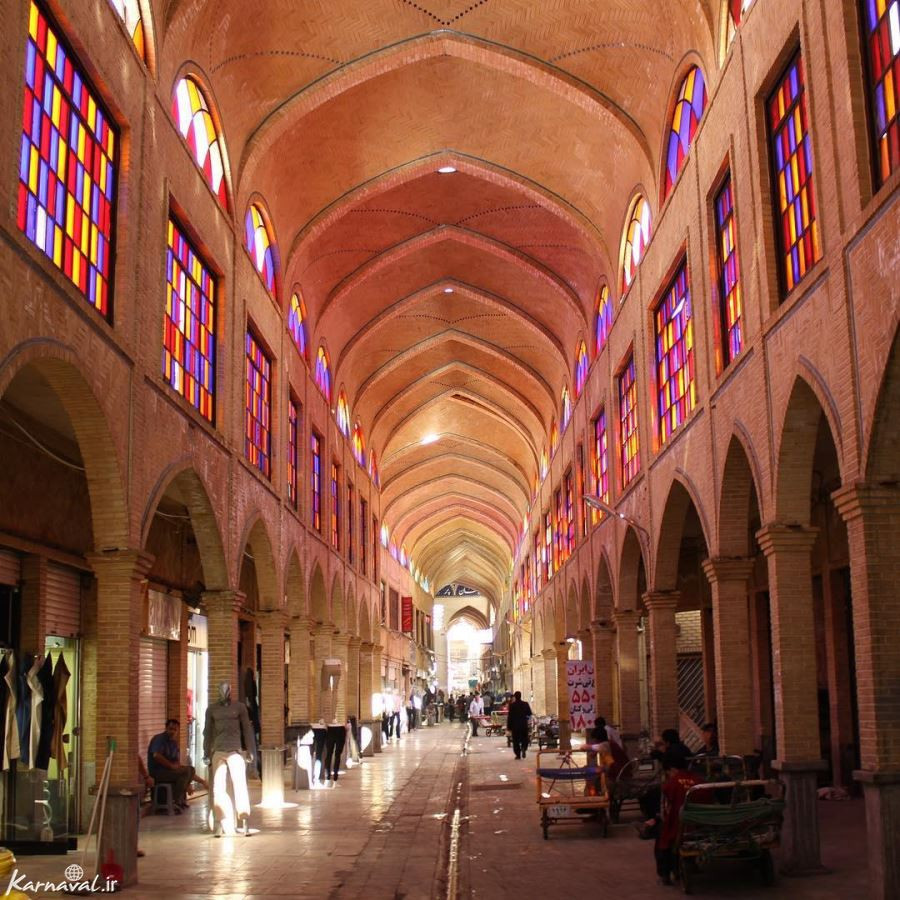The Grand Bazaar (Persian: Bāzār e Bozorg – بازار بزرگ) is an old historical market in Tehran, the capital of Iran.
Located at the Arg Square in Southern Tehran, it is split into several corridors over 10 kilometres (6.2 mi) in length, each specializing in different types of goods, and has several entrances, with the main being the entrance of Sabze Meydan.
In addition to shops, the Grand Bazaar of Tehran contains banks, mosques and guest houses. The bazar has access to Tehran Metro through Khayam Metro Station and Panzdah-e-Khordad Metro Station.

While the current bazaar is most associated with the 19th century onwards, its roots go back much further.
The area around Tehran has been settled since at least 6,000 BCE, and while bazaar-like constructions in Iran as a whole have been dated as far back as 4,000 BCE, Tehran’s bazaar is not that old. It is hard to say exactly when the “bazaar” first appeared, but in the centuries following the introduction of Islam, travellers reported the growth of commerce in the area now occupied by the current bazaar. The Grand bazaar is a continuation of this legacy.
Research indicates that a portion of today’s bazaar predated the growth of the village of Tehran under the Safavids‘ dynasty, although it was during and after this period that the bazaar began to grow gradually.
Western travellers reported that by 1660 CE and beyond, the bazaar area was still largely open, and only partially covered.


